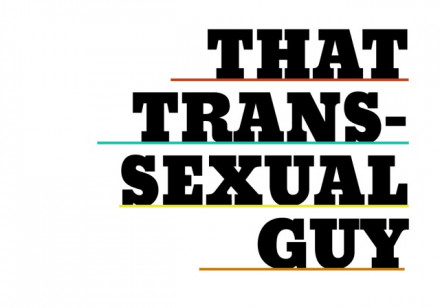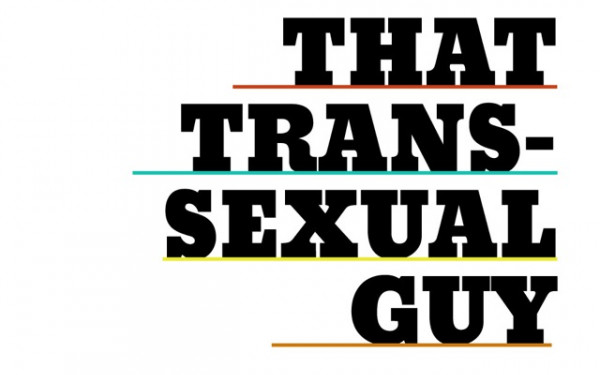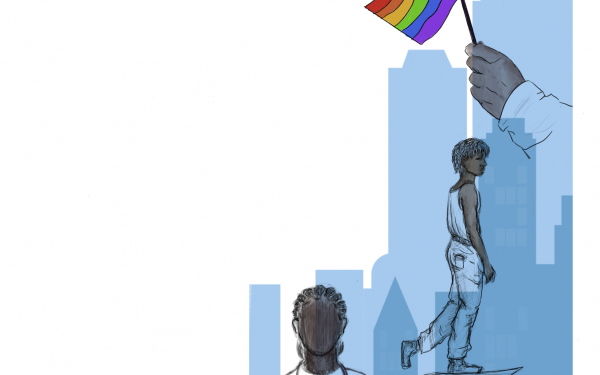Pronouns, Androgyny and Pirates
September 2012
Dear friendly loves and lovely friends,
Recently, while meandering home after a long day full of engaging conversations and good proper hugging, I fell into a pensive mood. I realized that my gender is a semi-colon; ambiguous and poetic. (Also occasionally pretentious and always useful.)
As you may or may not know, after two years, I am still not friends with ‘he’ / ‘him’ / ‘his’ pronoun—we are more like suspicious acquaintances who were never introduced properly. As such, I would like for you all to use ‘they’ / ‘them’ / ‘their’ pronouns when addressing my person.
I will be using ‘he’ / ‘him’ / ‘his’ pronouns in academic, professional and familial contexts. ‘He’ pronouns are my public pronouns, if you will, and ‘they’ pronouns are my more personal, intimate pronouns. I am comfortable with most masculinely gendered words (i.e. handsome gentleman) except for ‘guy.’ I am aware of the irony there.
If people ask you why you are referring to Oliver as ‘they’, simply mention that the questioner could ask me directly, instead of badgering you.
A few more notes: if anyone has any alternate suggestions for the title of my column “That Transsexual Guy,” feel free to send them my way. If people ask whether I identify as male or something else entirely, please say that you do not know and have heard me refer to myself as a dandy and a tenderqueer. I do still feel quite connected to the word ‘gentleman’ but the world doesn’t need to know my entire grocery list of comfortable gender expressions.
I may try out ‘ze’ / ‘hir’ (pronounced here) pronouns at some point so prepare your tongues for that. If, for whatever reason, these pronouns feel easier to say for you than ‘they’ / ‘them’ / ‘their,’ you have my permission to use them… although I will suspect you of caring about grammar too much unless otherwise noted.
A friendly and hopefully unneeded warning: if you feel horrendously uncomfortable about this and feel as if you cannot use my preferred pronouns, I will not have sympathy for you. I feel the need to include this warning because gender is a fight to be seen and heard—a fight that I have won bruises and scars from.
If you have questions for me, speak now or forever hold your peace.
Thank you for being my friends. I appreciate each of you deeply.
In love and solidarity,
Oliver Leon
I sent this letter out to my friends and partners five months ago. I kept a copy of it to myself so I could remember how far I’ve come.
I was not a butch growing up in the lesbian community who then decided to become a man (not that there’s anything wrong with that). I never identified as a woman or a girl. Anybody who has ever gendered me as female was/is deluding themselves. Fortunately, that’s a rare situation these days. I have people assume that just because I am a more dudely person that I should also grow up and be a macho man and get married. Assumptions like that make me want to grab some fancy china plates and smash them against the wall.
But don’t assume I’ve become more aggressive because I’m on testosterone. That was a joke.
Having people stare at me, puzzled and worried about my gender has gotten amusing. On good days, it is invigorating and hilarious. On bad days, it pops my bubble and ruins my mood for a while, but fortunately public consternation no longer has the same affect on me after a lifetime of “are you a boy or a girl?”
At this point in my life, I am making a persistent effort to not care if people perceive me as female, male, androgynous or ‘it.’
Two summers ago, I was complaining to my mom and her boyfriend that I was tired of people staring at me when they weren’t able to “figure out” my gender. My mom’s boyfriend suggested that I stop presenting in an androgynous way: I was trying my best to be perceived as male without access to hormones, and he blamed me for purposely confusing people.
I was so shocked that the only comment I could choke out was, “No.”
I refused to engage with him more than that. To this day, I still try to avoid in-depth conversations with him about gender because we will inevitably end up being in an argument. Usually though this means saying nothing at all whenever he makes a remark about “men are like this” or “women are like this,” so I usually roll my eyes or make a face. He brushes off my dismay.
My point here is that definitions such as “masculine” and “feminine” feel limiting—they don’t convey depth of human expression, they merely define a quality by shoving it into the gender binary. Gentle people become feminized and tough people become masculinized.
I’ve arrived at a space in my life where gender descriptors don’t feel helpful anymore; they feel like boundaries. But just like the boundaries of countries, there are imaginary lines drawn around gender. So I am using ‘they’ pronouns and that has felt good for the five months that I have been referred to as ‘they.’ I’m not a third gender or genderqueer. I’m just me. While identities are useful tools to find like-minded community, when these identities become boxes we feel obligated to adhere to, it is time to examine what this glue is made of and who put it there.
This article isn’t a pirate’s map of my gender, there is no X to mark the spot where I’ll have all the answers. My gender is a buried treasure chest with another map hidden inside. I don’t know if I’ll ever have all the answers. I am okay with that. Anyway, it’s more fun to question gender and threaten to throw it to the sharks.





_600_375_s_c1.png)
